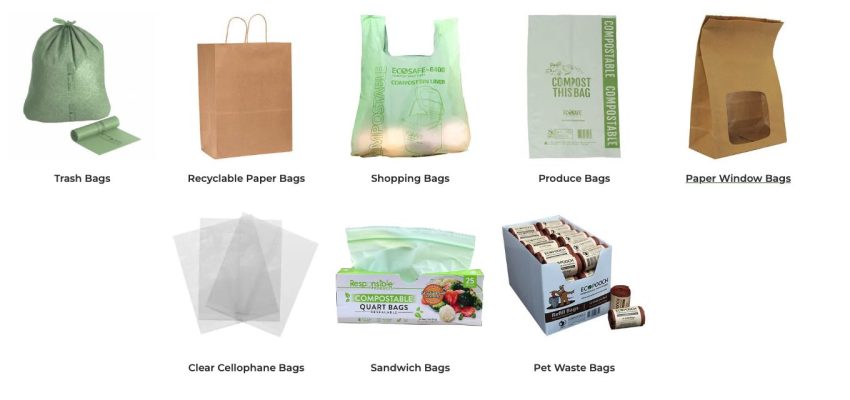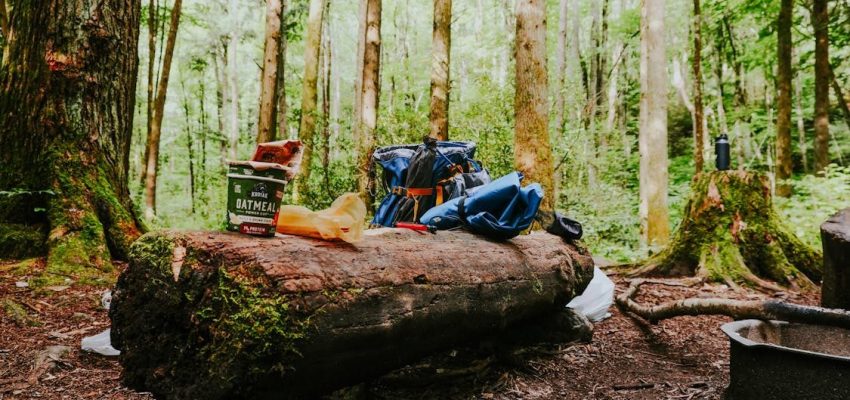Sometimes, our busy lives lead to clutter accumulating in various corners of our homes. It’s not something we intentionally do, but the demands of work and daily routines often leave us with little time to clean and organize our spaces. Over time, this clutter gives our homes this chaotic feel, and you start to feel like our space is unmanageable; trust me, I know the feeling.
Where it gets tricky is when you decide to declutter, and then you wonder how you can effectively clean up your home in a way that has little or no environmental impact. The good news is that decluttering doesn’t have to be a daunting task, and it can even be done in an eco-friendly way. By using compostable trash bags, you can efficiently tidy up your home while also reducing your environmental footprint.
Understanding Compostable Trash Bags

First, let us understand compostable trash bags. The identity of a compostable trash bag lies in the materials used to make it. These are natural materials that are known to break down into non-toxic components in a compost environment.
What Are They Made From?
Compostable trash bags are made from a variety of natural materials:
- Biomass and Food Waste: These are converted into bioplastics, offering a sustainable alternative to traditional plastics.
- Natural Polymers: Examples include Polyhydroxyalkanoates (PHA) and Polylactic Acids (PLA).
- Plant-Based Materials: Commonly used sources are cornstarch and sugarcane.
Often the terms “compostable” and “biodegradable” are often used interchangeably, but they have distinct meanings, especially in the context of waste management and environmental sustainability. Understanding the distinction between the two is crucial for making informed choices about the materials we use and dispose of.
The thing with biodegradable materials is that they can be broken down by microorganisms such as bacteria and fungi into natural elements like water, carbon dioxide, and biomass. This process can occur under aerobic (with oxygen) or anaerobic (without oxygen) conditions.
On the other hand, compostable materials are a subset of biodegradable materials that break down under specific conditions into nutrient-rich compost. Composting requires a controlled environment with the right balance of heat, moisture, and aeration to facilitate the decomposition process.
Think of biodegradable materials like a large group of people with varying speeds. Some people (like paper) are fast walkers, while others (like plastic bags) are slow walkers. Compostable materials are like a smaller group of people who are all trained sprinters; they break down quickly and efficiently. In essence, all compostable materials are biodegradable, but not all biodegradable materials are compostable.
Read More: Want to Save The Planet? Quit Smoking
How to Identify Compostable Trash Bags
Compostable trash bags meet specific standards that qualify them as compostable. Look for certification logos like ASTM D6400 (USA), EN 13432 (Europe), AS 5810 (Australia), and ISO 14855 (Global). These standards ensure the bags:
- Biodegrade within a specific timeframe, typically between 180 days (6 months) and 365 days (1 year) in a controlled composting environment.
- Do not leave behind harmful residues or toxic substances.
- Break down into harmless materials.
It is important to note that while these standards ensure the bags decompose safely, the overall quality of the final compost depends on the entire composition of your compost pile.
The Benefits of Using Compostable Trash Bags
Using compostable trash bags offers several benefits that extend beyond just decluttering your home. Here are some key advantages:
Environmental Benefits
- Reduced Greenhouse Gas Emissions: Compostable bags, made from renewable resources, significantly lower greenhouse gas emissions compared to traditional plastic waste.
- Energy Savings: The composting process is less energy-intensive, reducing overall energy consumption.
- Lower Landfill Volumes: The biodegradable nature of compostable bags reduces the volume of waste in landfills as they decompose alongside organic waste.
- Support for a Circular Economy: These bags are part of a sustainable cycle. They are made from renewable resources and decompose into materials beneficial to the soil.
Read More: 5 Impactful and Easy Tips for Sustainable Living
Personal Benefits
- Healthier Living Environment: Compostable bags help maintain a clean and organized home, reducing stress and promoting a healthier living space.
- Ease of Use: They are just as easy to use as traditional plastic bags, making the transition seamless.
- Eco-Friendly Mindset: Using compostable bags instills a sense of responsibility and mindfulness towards the environment.
Read More: Sustainability at Its Core: The BYD Dolphin’s Eco-Friendly Features
Incorporating Compostable Trash Bags into Your Decluttering Routine
Now that we understand the benefits, let’s explore how you can effectively incorporate compostable trash bags into your decluttering routine.
Step 1: Make the Decision
The first step is deciding to declutter and make a conscious compostable trash bag instead of the conventional trash bag you may have been using over the years. This decision will guide your actions and help you stay committed to your eco-friendly decluttering efforts.
Step 2: Sort Your Trash
Sorting your trash is crucial. Divide your waste into categories: compostables, recyclables, reusables, and donations. Use color-coded bins to make sorting easier and more efficient.
Step 3: Choose Certified Compostable Bags
When purchasing compostable trash bags, ensure they meet international standards and have the necessary certifications. This ensures you are using genuinely eco-friendly products.
Step 4: Use Compostable Bags for Suitable Waste
Use compostable bags for food scraps, paper waste, and fabrics. These materials will break down easily in composting conditions, ensuring the process’s effectiveness.
Step 5: Consider Home Composting
If you have the space, consider setting up a home composting system. This allows you to compost your waste directly and benefit from the rich compost for your garden.
Step 6: Maintain Your Trash Area
Keep your trash area clean and well-ventilated. Regularly empty your bins and ensure they are not overflowing. This helps maintain a hygienic and pleasant environment.
Step 7: Educate and Involve Your Household
Educate your family or housemates about the importance of using compostable bags and proper waste sorting. Involve them in the process to ensure everyone is on the same page.
Read More: 8 Ways To Make Your Camping Expedition Eco-Friendly
Maintaining an Eco-Friendly Home
Decluttering with compostable trash bags is just one step towards an eco-friendly home. Here are some additional tips to maintain sustainability in your living space:
- Use Creative Reminders: Place fun and creative reminders around the house to encourage eco-friendly habits.
- Make Cleaning Fun: Turn daily tidying into an inclusive and enjoyable activity for everyone in the household.
- Strategic Placement: Keep compostable trash bags in convenient locations to discourage littering.
- Color-Coded Bins: Use color-coded bins to simplify waste sorting and ensure compliance.
- Reduce Unnecessary Purchases: Discourage impulse buying to prevent clutter buildup.
- Seasonal Deep Cleaning: Schedule regular deep cleaning sessions to maintain a clean and organized home.
- Community Involvement: Organize community clean-up events to raise awareness about sustainable living.
- Educational Resources: Provide resources to educate others about eco-friendly practices.
Conclusion
We all understand the struggle. Life gets busy, clutter accumulates, and the thought of decluttering feels overwhelming. However, knowing that you can tidy up your home in an eco-friendly way makes the process not only manageable but also rewarding. Using compostable trash bags to clean your home is like using a stone to kill two birds; You will be organizing your space and making a meaningful contribution to the health of our planet.
This might seem like a small change, but it makes a lot of difference, and your efforts can inspire others to follow suit. Imagine the collective impact if more of us adopted these eco-friendly practices: Our communities would be cleaner and our environment healthier. So, let’s make a personal commitment to eco-friendly decluttering. Start today by choosing compostable trash bags and encouraging your friends and family to do the same.




